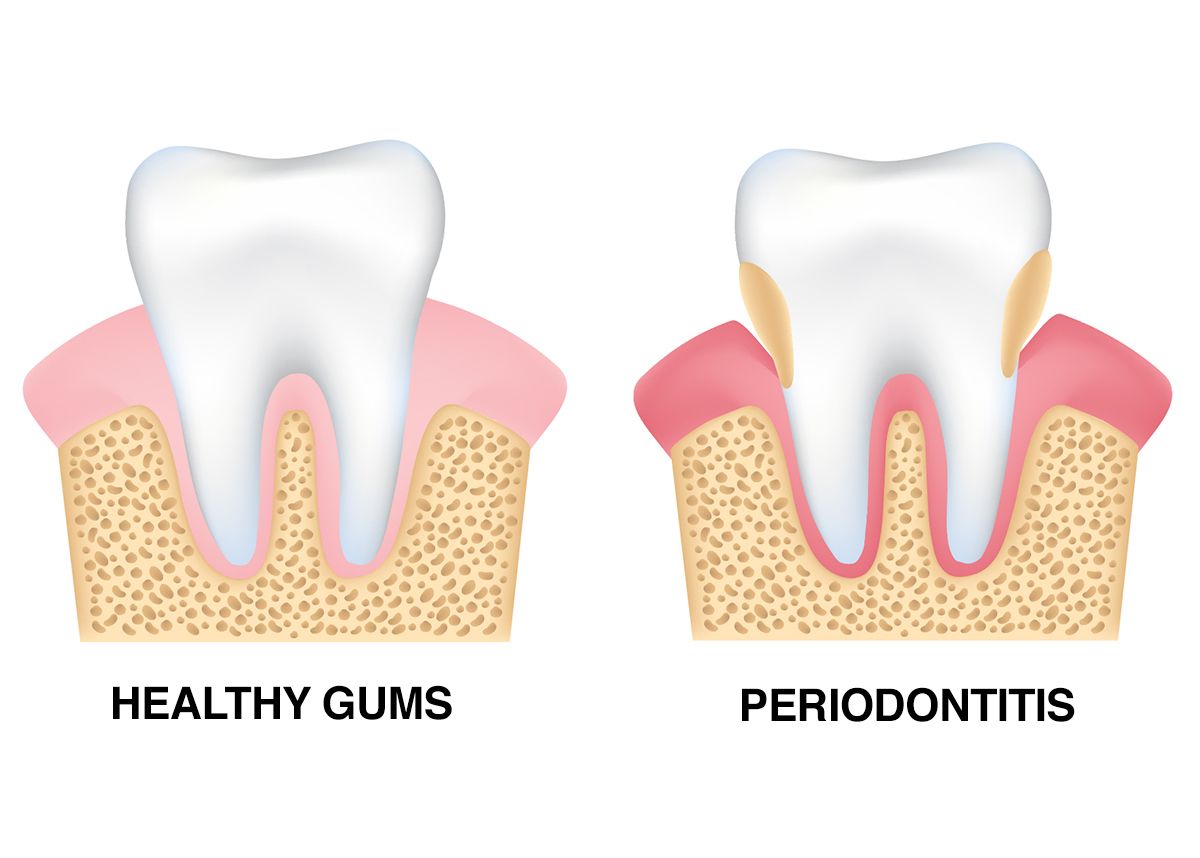Filling the Gaps: How Gum Disease Can Lead to Tooth Loss
 The people of Birmingham know that our practice offers some of the most advanced dental treatments in the area. This includes the latest in general dentistry services as well as restorative dentistry to help improve the health of the teeth and gums.
The people of Birmingham know that our practice offers some of the most advanced dental treatments in the area. This includes the latest in general dentistry services as well as restorative dentistry to help improve the health of the teeth and gums.
Gum disease can be a major health issue, and it's important to take it seriously. In fact, gum disease can progress to an advanced stage, which can result in tooth loss.
About Gum Disease
Also known as periodontal disease, gum disease is the inflammation of the gum tissue. This is the result of the bacteria that naturally occurs in the mouth infecting the gum tissue. This is the same oral bacteria that causes tooth decay and bad breath as well.
When gum disease occurs, it can result in a number of serious problems that affect overall dental wellness and general health.
The Stages of Gum Disease
There are three stages of gum disease:
- Gingivitis
- Periodontitis
- Advanced periodontitis
The symptoms of gum disease get worse with each stage. Gingivitis has the mildest symptoms, including gum irritation, bleeding gums, discolored gums, and sensitive gums. In later stages of gum disease, issues such as gum recession, tooth misalignment, and even tooth loss can occur.
Ways That Gum Disease Can Cause the Loss of Teeth
There are several reasons why advanced gum disease can cause the loss of teeth.
-
Gum Recession – Gum recession refers to the loss of gum tissue, exposing more of the root structure of the teeth in the process. As patients lose gum tissue, it is more likely for teeth to come loose and fall out.
-
Tooth Decay Below the Gumline – With more of the tooth root exposed, this increases the risk of tooth decay below the gumline. This leads to serious issues with tooth structure that are more difficult to deal with than traditional cavities, making tooth loss more likely.
-
Changes in Tooth Alignment – When teeth shift position in the mouth, they are not as stable or anchored in place as they once were. This can lead to the loss of a tooth if patients aren't careful.
-
Root Canal Infections – Root canal infections refer to infections of the soft tissue inside of the teeth. When these occur and are not treated promptly, tooth extraction may be necessary to alleviate pain and prevent the spread of infection.
Treatment Options for Gum Disease
When it comes to treating gum disease, the most common options involve the use of antiseptic rinses and antibiotics. This keeps the infection and inflammation under control. Gum recession can then be addressed through soft tissue augmentation and grafting procedures.
Treatment Options for Tooth Loss
If you have suffered from tooth loss as a result of gum disease, the most common treatment options include:
- Dental bridges
- Dentures
- Dental implants
Candidacy for these treatments can be discussed in greater detail during your visit to the practice.
Tips for Preventing Gum Disease
To prevent gum disease from occurring, follow these tips for good oral hygiene:
- Brush your teeth at least twice a day (ideally after every meal)
- Floss your teeth at least once a night (ideally after every meal)
- Do not use tobacco products
- Eat a healthy and well-balanced diet
- Visit your dentist regularly for routine checkups
Learn More About Gum Disease and Tooth Loss
To learn more about gum disease, tooth loss, and your treatment options for these dental health issues, be sure to contact our family dental care center today. Our entire team looks forward to your visit and helping you have the healthiest and most beautiful smile possible.


